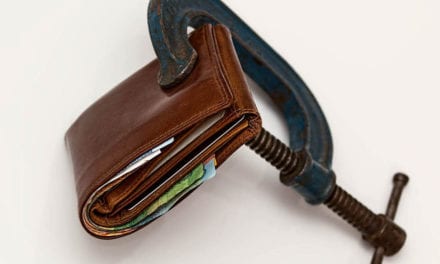The first thing the Credit Monkey tells clients serious about credit repair is, “Don’t pay any old bills without talking to me first.”
The Monkey knows that it sounds counter-intuitive, but it’s true. Its possible to lower your credit score simply by paying old debt. Better said, you can lower your credit score by paying old debt the wrong way. In fact, paying old debt willy-nilly can do more than lower your credit score. It can damage your credit file for years to come. Crazy right? Yet, its true. It happens all the time. Here’s why.
Sending debt validation and credit report dispute letters trigger actions from collectors. They scrutinize their files for any other accounts in your name. This is especially true of third party collection companies. If collectors find more accounts, they begin a barrage of last ditch efforts to get paid. They know that if you are serious about credit repair, they may soon lose the ability to collect the debts.
Let the Harassment Begin
When collection agencies see credit repair activity, they call pressuring you to pay “what you owe.” When pressure tactics fail, collectors use alternative strategies. They offer steep discounts for payment. It could be as much as sixty percent (60%) off what they claim you owe. Of course, you get the discount only if you pay today. They don’t want you to think about it. They just want you to pay. What they really want is for you to react with guilt and not with thought. Emotion says, “pay.” Thought says, “not.”
Regardless of the pressure or a seemingly amazing discount, DO NOT GIVE COLLECTION AGENCIES A PENNY TODAY. If you do, you will be sorry. Paying them today makes improving your credit score more difficult later. Besides, if you ask, you will be able to get a better deal later. The Monkey knows. To learn more about the better deal, see the Monkey’s post, The 3 Most Powerful Words in Credit Repair.
Let Your Credit Repair Letters Work
You recently sent debt validation and credit report dispute letters. Give them time to work. If the collection agency does not timely respond to your letters or does not respond properly, federal law requires that the derogatory mark they placed in your credit file should be removed.
Date of Last Activity
The longer a derogatory mark remains on your credit report, the less impact it has. The age of an item on your credit file is calculated using the date of last consumer activity (DLA) for that account. The DLA changes when any charge or payment is made to a credit account by you, the consumer.
Creditor activity, like the addition of a fee, interest charge or a charge off, is NOT consumer activity. It is creditor activity. It is not used to calculate account age. Accordingly, if the last time you used a credit card or made a payment on that account was six (6) years ago, your account has aged six (6) years.
That six (6) year old negative mark can be corrected or removed from your credit report if the correct steps are taken. See the Monkey’s post, The 3 Most Powerful Words in Credit Repair. Even if for some reason that negative mark cannot be removed from your credit report, its age would have little affect on your credit score and would go away on its own after seven (7) years from the DLA.
Paying an Old Collection Has Consequences
Let’s say that last week in a moment of weakness, you made the mistake of paying an old collection account when offered a huge discount. That payment changed the age of that debt from six (6) years old to the present month. The credit score algorithm sees that account as a new delinquent account. Its no longer a six (6) year old account ready to fall off your credit report. Its now a new paid delinquent account with at least six (6) years of late payments.
Your last payment and the collections account history associated with it stays on your credit report for another seven (7) years. Ouch and double ouch! That reporting extension occurs even if you pay the collectors only one dollar ($1.00) against a five dollar ($5.00) debt. The new DLA permits six (6) years of delinquent payments to be calculated into your credit score for up to seven (7) more years. Just one dollar ($1.00) did that to you.
Additionally, your one dollar ($1.00) payment probably affects your rights under the Statute of Limitations exposing you to a possible lawsuit. For now, don’t worry about the Statute of Limitations. The Statute of Limitations is a discussion for another post.
Be careful paying old bills, even if it seems like the right thing to do. If paying an old bill is not part of your credit repair plan, DON’T DO IT. A little restraint can help you and/or your credit repair professional fix your credit far quicker. Lack of restraint can drag out the credit repair process for years.
The Credit Monkey loves comments. If you found this post helpful, please leave a comment, share it on social media or send the Monkey an email at [email protected].






Recent Comments